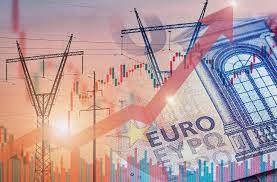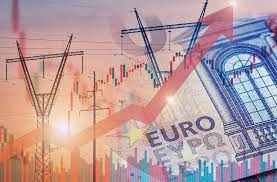
In response to a worsening energy crisis that has exposed Europe's reliance on Russian fuel, Germany nationalized gas importer Uniper on Wednesday and Britain announced it would halve energy bills for businesses.
In the biggest escalation of the Ukraine war since Moscow's invasion on February 24, Russian President Vladimir Putin announced a partial military mobilization, adding to the upward pressure on energy prices.
According to analysis by think tank Bruegel, nearly 500 billion euros ($496 billion) had already been set aside by European governments in the previous year to protect people and businesses from skyrocketing gas and electricity prices.
Germany allocated an additional 8 billion euros on Wednesday as the latest step in a 29 billion euro bailout, placing Uniper among the biggest corporate casualties.
France, another country that spends a lot, will spend 9.7 billion euros to acquire complete control of utility EDF.
Britain estimated that the cost of its new business assistance plan would be "tens of billions of pounds."
"We have stepped in to stop businesses collapsing, protect jobs, and limit inflation," Britain's finance minister Kwasi Kwarteng said of the cap on wholesale electricity and gas costs for businesses, which is set to apply from Oct.1 read more
Over 20 British power companies have shut down, many of them as a result of a government price cap that prevented them from passing on rising costs.
The German government will purchase Fortum from Finland as part of the full nationalization of Uniper, giving the state a 99 per cent ownership stake.
"This is clearly not sustainable from a public finance perspective," Bruegel senior fellow Simone Tagliapietra said of Europe's overall energy crisis bill.
"Governments with more fiscal space will inevitably better manage the energy crisis by outcompeting their neighbours for limited energy resources over the winter months."
In announcing the Uniper move and other initiatives to prevent energy rationing this winter, German Economy Minister Robert Habeck stated: "The state will... do everything possible to always keep the companies stable on the market."
According to a government spokesperson, the German government now has control over some Russian assets as a result of the Uniper ationalization, and it is considering what to do with them.
Compared to other countries in Europe, Germany was more dependent on Russian gas, which was primarily delivered via the Nord Stream 1 pipeline. Russia stopped all pipeline traffic, blaming Western sanctions for making things difficult. Politicians in Europe dismiss that as a ruse and accuse Moscow of using energy as a weapon.
The German government has already de facto nationalized Gazprom Germania, a division of the Kremlin-controlled Gazprom and a subsidiary of Rosneft, the Russian oil company. The total cost, including Uniper's bailout, is about 40 billion euros.
(Source:www.euronews.com)
In the biggest escalation of the Ukraine war since Moscow's invasion on February 24, Russian President Vladimir Putin announced a partial military mobilization, adding to the upward pressure on energy prices.
According to analysis by think tank Bruegel, nearly 500 billion euros ($496 billion) had already been set aside by European governments in the previous year to protect people and businesses from skyrocketing gas and electricity prices.
Germany allocated an additional 8 billion euros on Wednesday as the latest step in a 29 billion euro bailout, placing Uniper among the biggest corporate casualties.
France, another country that spends a lot, will spend 9.7 billion euros to acquire complete control of utility EDF.
Britain estimated that the cost of its new business assistance plan would be "tens of billions of pounds."
"We have stepped in to stop businesses collapsing, protect jobs, and limit inflation," Britain's finance minister Kwasi Kwarteng said of the cap on wholesale electricity and gas costs for businesses, which is set to apply from Oct.1 read more
Over 20 British power companies have shut down, many of them as a result of a government price cap that prevented them from passing on rising costs.
The German government will purchase Fortum from Finland as part of the full nationalization of Uniper, giving the state a 99 per cent ownership stake.
"This is clearly not sustainable from a public finance perspective," Bruegel senior fellow Simone Tagliapietra said of Europe's overall energy crisis bill.
"Governments with more fiscal space will inevitably better manage the energy crisis by outcompeting their neighbours for limited energy resources over the winter months."
In announcing the Uniper move and other initiatives to prevent energy rationing this winter, German Economy Minister Robert Habeck stated: "The state will... do everything possible to always keep the companies stable on the market."
According to a government spokesperson, the German government now has control over some Russian assets as a result of the Uniper ationalization, and it is considering what to do with them.
Compared to other countries in Europe, Germany was more dependent on Russian gas, which was primarily delivered via the Nord Stream 1 pipeline. Russia stopped all pipeline traffic, blaming Western sanctions for making things difficult. Politicians in Europe dismiss that as a ruse and accuse Moscow of using energy as a weapon.
The German government has already de facto nationalized Gazprom Germania, a division of the Kremlin-controlled Gazprom and a subsidiary of Rosneft, the Russian oil company. The total cost, including Uniper's bailout, is about 40 billion euros.
(Source:www.euronews.com)














